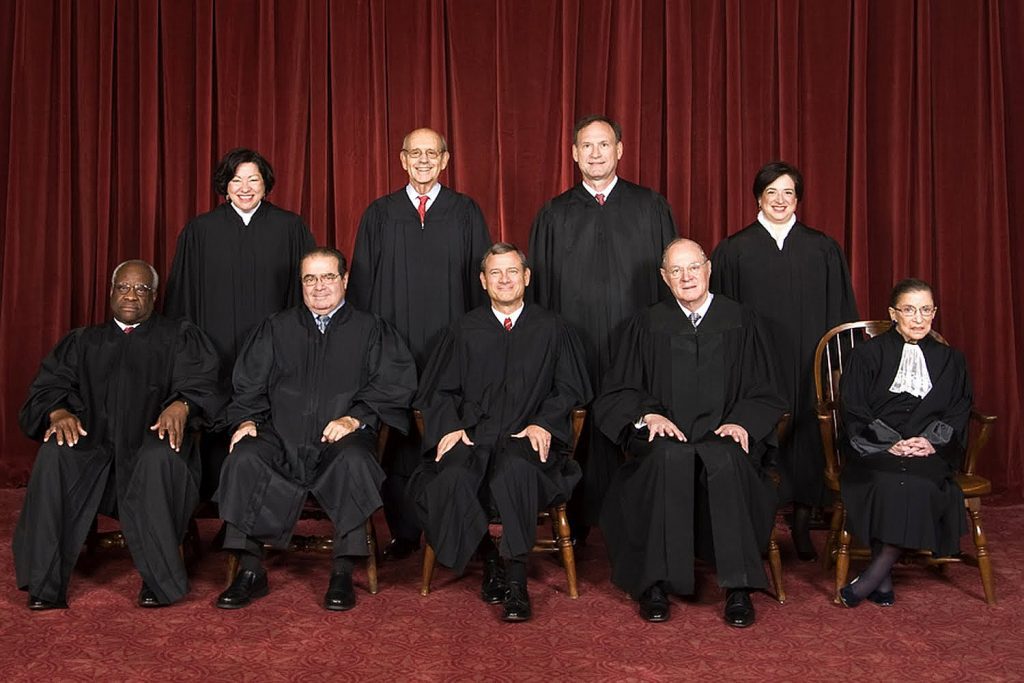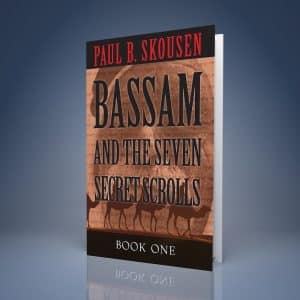Thomas Jefferson’s Answer to a Runaway Supreme Court
One of the gaping holes left in the Constitution by the Founding Fathers was a check on the U.S. Supreme Court. There was no process put in place to prevent the Court from exercising its prejudiced will instead of exercising unprejudiced judgment.
Thomas Jefferson saw this potential problem early on: “The opinion which gives to the judges the right to decide what laws are constitutional and what not … would make a judiciary a despotic branch.” (Bergh, 11:50)
Letting the Court Grow Too Strong
The Founders worked hard to put restraints on the Executive and Legislative branches, but left the Judiciary unbridled. Jefferson warned this would let the Court become an enemy to freedom:
“Our judges are as honest as other men, and not more so,” Jefferson said. “They have, with others, the same passions for party, for power, and the privilege of their corps…. Their power [is] the more dangerous as they are in office for life, and not responsible, as the other functionaries are, to the elective control.” (Bergh, 11:50)
Without checks and balances, the Court’s decisions have evolved away from the Constitution and into personal and political vendettas or judicial activism.
That dire ending place is most recently demonstrated by: the Court removing the freedom of unhindered participation in healthcare (Affordable Care Act), removing a protection on voting rights (voters are no longer required to show proof of citizenship), and removing the freedom to retain the 6,000-year-old definition of marriage on the state level (forcing recognition of gay marriage)—all of these decisions are outside of the Court’s constitutionally defined job description.
Jefferson’s Solution
In letters to friends, Jefferson laid out some constraints to put the Court back under constitutional controls.
No Lifetime protection: The idea of lifetime appointment was to insulate the justices from political pressures brought to bear by the presidents who put them on the bench.
That protection presumed there would always be a degree of integrity in the justices’ view of judicial power, and that they would look to the Constitution as the final arbiter in all issues. And, where the Constitution was silent on a particular issue, they could be trusted to return the issue back to the states or to Congress to pass new laws. (Jefferson to James Pleasants)
Many justices today are activists. They create new law instead of applying existing constitutional law. That is an abuse of the security offered by life-time appointment, and it should be removed.
Earning the People’s Trust: Jefferson wanted to make the justices earn reappointment by the president every 4-6 years—with mandatory approval from both houses. To reduce the risk of cronyism between the justices and the president, their terms would overlap by 2 years, obligating them to be in sync with the next president if they wanted to keep their jobs. This would keep pressure on the justices to be anchored in the common ground of constitutional law, and not sway to partisan politics.
Overrule by the People: Jefferson suggested that 2/3rds of the state legislatures be allowed to pass a bill to overturn a bad Court decision. Or, they could overturn a decision in an Article V Constitutional Convention with a 3/5ths majority.
The genius of this idea is that every justice wants to go down in history as a brilliant and fair arbitrator. The threat of being overturned by the people puts pressure to stay true to the principles protected in the Constitution. (See Jefferson letters to William Johnson and Nathaniel Bacon)
Pro-Constitution justices would have nothing to fear with this—anti-Constitution justices would squirm.
Jefferson’s Prophetic Warnings
By the time Jefferson became president the Court was already taking power it wasn’t granted, and he sent stern warnings about that unconstitutional usurpation.
Warning Fulfilled: “The judiciary branch is the instrument which, working like gravity, without intermission, is to press us at last into one consolidated mass. …If Congress fails to shield the States from dangers so palpable and so imminent, the States must shield themselves, and meet the invader [the judiciary] foot to foot.” (Jefferson to Archibald Tweat)
Warning Fulfilled: “If ever this vast country is brought under a single government, it will be one of the most extensive corruption—indifferent and incapable of a wholesome care over so wide a spread of surface.” (Jefferson to W. T. Barry)
Warning Fulfilled: “Our particular security is in the possession of a written Constitution. Let us not make it a blank paper by construction.” (Jefferson to C. Hammond)
Education is the Answer
Jefferson said the very best repair for both the existing broken judicial system and the prevention of future activism is teaching Americans what the problems and solutions are, not simply taking away pieces of their freedoms as solutions.
“I know of no safe depository of the ultimate powers of the society but the people themselves; and if we think them not enlightened enough to exercise their control with a wholesome discretion, the remedy is not to take it from them but to inform their discretion by education. This is the true corrective of abuses of constitutional power.” (Bergh 11:50)
The time has come to adopt Jefferson’s recommendations, without delay.
Read more about the Supreme Court in The Naked Socialist Series by Paul B. Skousen published by Izzard Ink.







